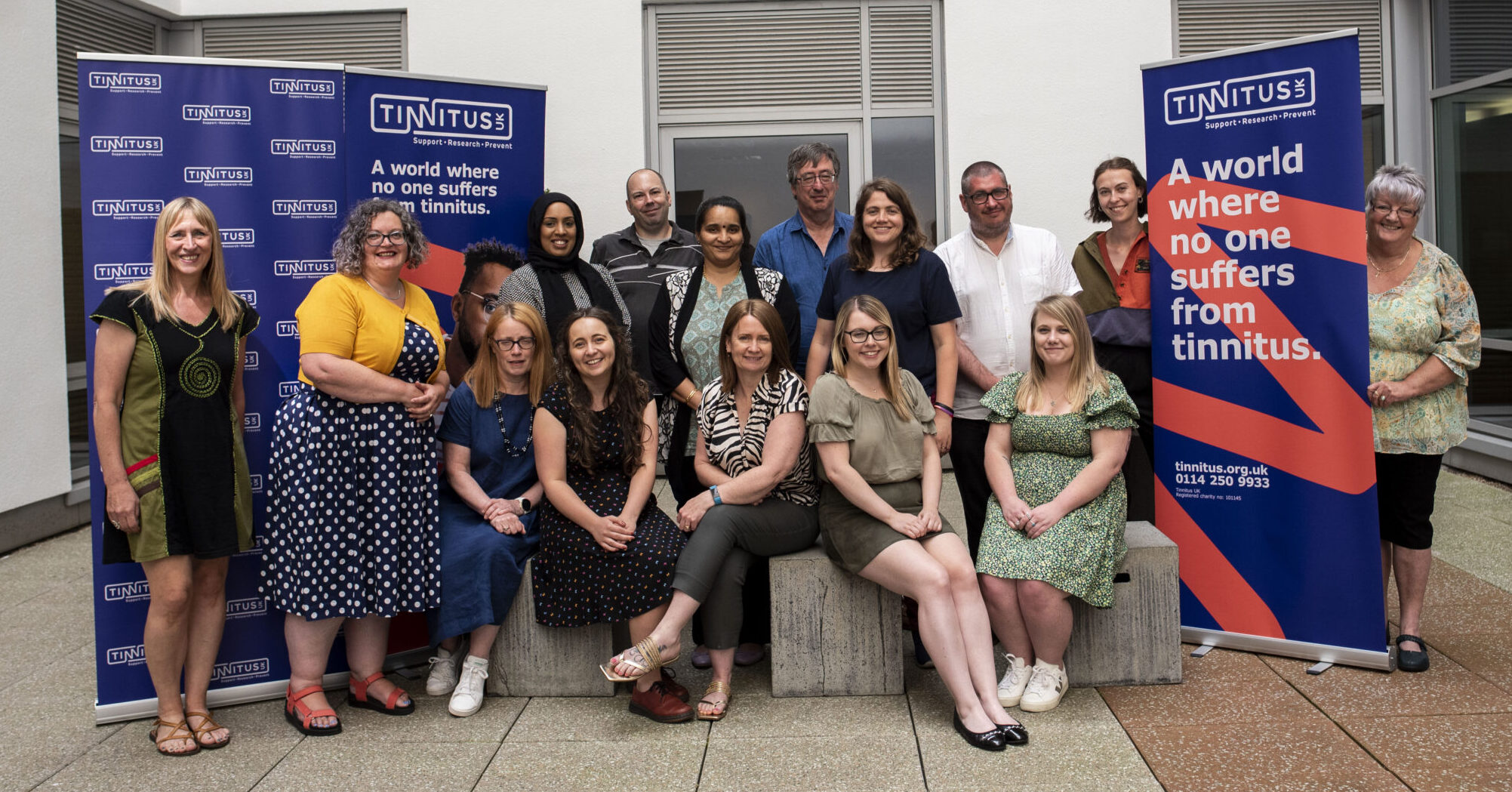I teach a child with tinnitus
Find out how to support a child in your class who has tinnitus which is affecting their concentration and mental health.
Tinnitus: a teacher’s guide
If a child in your class has recently been diagnosed with tinnitus, or has told you they hear noises in their head or ears, you may be looking for information so you can support them. This page will explain what tinnitus is, how it may affect children in the classroom, and what you can do to help.
Most children are not troubled by their tinnitus but some can be distressed by it. Working with the child’s parents / carers, this will help you provide reassurance and support to a child in your care.
Tinnitus is the sensation of hearing a sound when there is no external source for that sound. Someone with tinnitus may hear ringing, buzzing, hissing, whistling or other noises.
It’s commonly believed that tinnitus only affects older adults. Actually, tinnitus is very common in children. Recent research suggests that one child in 30 has clinically significant tinnitus.
The incidence is higher in children with hearing loss. It appears to be twice as common when compared to children with normal hearing. There is some evidence to suggest that it may be common in children with otitis media (glue ear). Glue ear is caused by fluid that collects behind the ear drum. This can cause temporary hearing loss. Glue ear usually clears on its own with no treatment.
The majority of children are not troubled by their tinnitus, and it does not affect their performance in class. However, a small number of children can be distressed by it and need support.
Everyone’s tinnitus is different.
Many people hear a ringing sound but others hear whistling, buzzing, hissing or crackling or a mixture of these.
The noise may be heard in one ear, in both ears, in the middle of the head. For some, it may be difficult to pinpoint its exact location. The noise may be low, medium or high pitched. There may be a single noise or two or more components. The noise may be continuous or it may come and go. It can be quiet or very loud, or the volume may fluctuate.
The experience of tinnitus is common and most children are not bothered by it. An explanation and some reassurance will help. However, a small number of children will require support to help with distress or the impact it has on their lives.
These children may present at school with difficulties of listening and concentration. These may include:
- unexplained listening difficulties, which may be intermittent rather than continuous, and may happen only in specific situations (eg quiet reading time)
- worries or anxiety about not being able to hear the teacher’s voice easily, and concern about being told off for not paying attention
- problems hearing speech when there is background noise, in rooms with poor acoustics, or in quiet situations
Many children with tinnitus feel isolated because they don’t know who to talk to about it. Experiencing the presence of sounds that they can’t control or explain or share can be very frightening.
Tinnitus can be a difficult condition to learn to live with and can cause anxiety. Anxiety, in turn, often makes the experience of tinnitus worse.
Children tend not to tell adults spontaneously about their tinnitus but when directly asked are able to describe their symptoms in a descriptive or emotive way.
Very young children may not know why they hear sounds in their head or ears or may believe that there is actually something there, for example, buzzing bees, monsters, or rice crispies.
Older children can share similar worries that there is something in their head but they may also be worried that they are losing their hearing, “going mad”, or that they will be unable to go to university or get a job when they are older. If a child shares these concerns with you, share them with their parents / carers.
If you have noticed a child displaying some of the “soft” signs of tinnitus outlined above, ask them why they think they are having problems hearing. If tinnitus is described as a cause, a discussion with the child’s parents / carers may be required.
Talking to children about the noises they hear in their ears or their head, and whether it bothers or annoys them, needs to be done sensitively and in a non-leading manner.
When a child attempts to tell an adult about tinnitus and feels dismissed, they may worry about why the adult won’t discuss it. The child may then become scared of tinnitus and what it might mean, or fear being ridiculed if they know it is a sound only they can hear.
Your patience and understanding will help them as they adjust. Just letting them know that you are aware that what they are going, will be a huge help.
There are a number of ways to reduce the impact of tinnitus in a school environment. A management plan can be developed with the child after assessing their experience of tinnitus. This may be included in the child’s Educational Health and Care Plan.
Remember that most children with tinnitus manage well, and it does not affect their performance in class.
If a child is troubled by their tinnitus, then they, their parents / carers and health professionals will work with you to devise some simple strategies to help the child cope better in the classroom. These could include:
- moving the child away from noisy groups / people if they are showing signs of distress or difficulty hearing.
- finding a way for them to alert you if tinnitus is triggered in a lesson – this could be a laminated card with a message or some other agreed signal.
- during group work, sympathetically consider requests for their group to move somewhere quieter to work.
- playing low-level noise (eg a computer or heating fan).
- avoiding working in a quiet place for a long time (eg during library time or exams). This may be distressing for the child or make concentration difficult. Background sound (eg a fan, or sitting near an open window) or the use of low-level music on an MP3 player may help.
- hearing protection when exposed to loud levels of sound such as music practice or loud events. Discourage prolonged exposure to sound, loud music, computer games etc. For more tips go to our Plug Em page.
- a “support card” which they have to hand. This may remind them about how to relax and breathe to help take their mind away from their tinnitus. This could be decorated with favourite pictures.
How to talk to children about their tinnitus
We have produced guides for children at various stages of learning. Below you can access guides for key stages 1-4.
-
Ellie, Leila and Jack have tinnitus
Ellie is worried. She is hearing a strange sound inside her ear.
Read more
-
What is tinnitus?
This information is for children in key stage 2
Read more
-
What is tinnitus?
This information is for young people in key stages 3 and 4
Read more
-
Ellie, Leila and Jack activity book
Ellie, Leila and Jack will help you come up with a plan to make your tinnitus less annoying.
Read more
-
What is tinnitus? Key stage 2 activity book
An activity book to help children in key stage 2 make a tinnitus management plan.
Read more
-
What is tinnitus? Key stage 3 workbook
A work book to help young people in key stages 3 and 4 make a personalised tinnitus management plan.
Read more
Help and support
Our Tinnitus Support Team can answer your questions on any tinnitus related topics:
- Telephone: 0800 018 0527
- Chatbot and Web chat: click on the icon in the bottom right corner of the page. If you can’t see it, it may be because you have pop-ups blocked.
- Email: helpline@tinnitus.org.uk
- Text/SMS: 07537 416841
The material here draws heavily from the document Tinnitus in Children: Practice Guidance produced by the Paediatric Tinnitus Working Group of the British Society of Audiology. We are very grateful for their support and co-operation in the production of this leaflet.
Authors: Nic Wray and Caroline Munro
Version 2.1
Updated October 2022
To be reviewed October 2025
Want to learn more?
We have delivered a webinar on supporting young people with tinnitus, which is available to purchase. Our webinars include a presentation from a guest speaker and Q & A with the audience. Please note that all webinars are recordings and you will receive a link to watch this on-demand.
Help keep this support free
Please give what you can to keep this advice and information free and available to everyone who needs it.
Donate today

